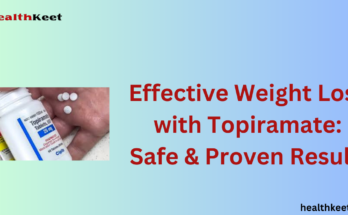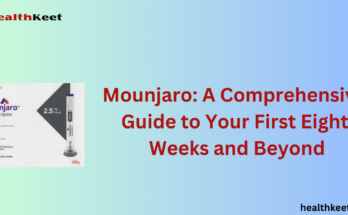According to studies, all major degenerative diseases, including diabetes, cancer, hypertension, and heart disease, share inflammation as a significant contributing factor. Weight gain and difficulties reducing weight are other effects. The good news is that various dietary and lifestyle choices and inflammation are associated. You can lower your risk of developing degenerative diseases, reduce bodily inflammation, and lose weight by implementing significant improvements in these areas with the use of a weight reduction programme.

Our bodies’ reaction to a threat or harm is inflammation. When you cut your finger, blood rushes to the wound so that white blood cells can guard the wound and protect you from infection. This reaction is the body’s attempt to protect itself and repair damaged tissue. Wounds won’t ever heal if there isn’t an acute inflammation. After a few days, this will pass because it is only temporary.
It is possible to break the cycle of inflammation and fat. The key to restoring the body to health and harmony is leading a healthy, balanced lifestyle. Given that it already has an impact on health, treat obesity as a chronic medical problem.
Insulin Resistance, Inflammation, and Weight Gain
The body releases cytokines in response to persistent inflammation. These cytokines may decrease insulin sensitivity in cells. Insulin resistance is what causes this.
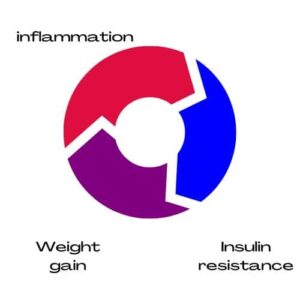
When the body is resistant to insulin, more insulin must be produced in order to stabilise blood sugar levels, which raises the blood level of insulin. Due to an increase in hunger and fat accumulation, weight gain may follow.
Woman upset following exercise
Chronic inflammation can also promote the formation of fat cells, especially in the abdominal region. Adipokines, which are inflammatory chemicals, can be produced and released by these fat cells and may have a role in insulin resistance.
Since inflammation and weight gain can also be brought on by insulin resistance, a vicious cycle results.
Leptin resistance, inflammation, and weight gain
Leptin resistance, which is reduced leptin sensitivity, can result from inflammation. This indicates that the body does not receive the brain’s signal to halt overeating, which could eventually lead to weight gain.
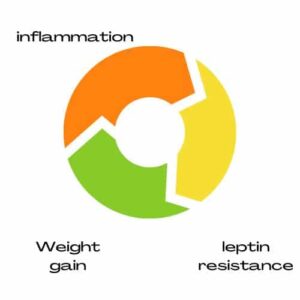
Then, being overweight can cause more inflammation.
Weight Gain, Cortisol, and Inflammation
An essential part of controlling the body’s stress response is played by the hormone cortisol.
When inflammation takes place, the body may release more cortisol, which can result in weight gain since it increases desires, hunger, and fat storage.
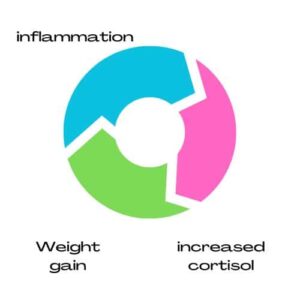
Increased waist circumference, a marker of abdominal fat accumulation, has been linked in studies to higher levels of cortisol.
A good night’s sleep can also be hampered by elevated cortisol levels, which might result in additional weight gain.
What factors lead to inflammation?
- Consistent stress. Cortisol, which is produced in response to stress, is linked to an increase in belly fat.
- Chemical, food additive, pesticide, and environmental exposure. Phthalate-containing skincare products have been linked to inflammation and oxidative stress.
- Food insufficiencies. Damage to cells results from this. Inflammation may result from low vitamin D, B6, and B12 levels.
- Being overweight puts the body under stress, which damages cells.
What are inflammation-causing foods?
Acid-forming foods like coffee, dairy, soda, sports drinks, bottled fruit juices, potato chips, alcohol, and processed and red meats increase inflammation.
How might the body’s inflammation be reduced?
The preceding list of anti-inflammatory foods should make up a significant portion of any healthy diet. But altering your diet on its own is insufficient. Your body may have trouble absorbing nutrients if you have leaky gut syndrome. Unbalanced hormones might affect how your body responds to food.
The body’s metabolism can be reset by intermittent fasting, which has been shown to be useful in lowering inflammation. Another crucial component is getting enough sleep and exercising frequently. Use phthalate-free cosmetics and skincare products. Steer clear of smoking and passive smoking. To reduce stress, try mindfulness meditation and yoga breathing exercises.
Additional anti-inflammatory supplements include vitamin B, omega-3 fatty acids, calcium, magnesium, and vitamin D.
How can you lose weight while reducing inflammation?
Avoid processed foods and sweets.
All of the chemicals, additives, colorings, added sugars, and other substances included in processed foods are likely irritants.
Include vegetables and fats that are anti-inflammatory.
Refuel with phytochemicals, omega-3 fatty acids, and antioxidants from fruits, vegetables, nuts, seeds, seafood, plant-based oils, and avocados.
Time your bedtime.
Adults require seven to eight hours of sleep on average in order to recover, repair, and refuel for the following day. Lack of sleep deprives the body of the resources necessary for optimal operation and causes fresh inflammation.
Include meals that are good for your intestines.
To reduce inflammation, the microbial barrier in the stomach must be strengthened. As a result, irritants are kept out of our bloodstream. Consume things like yoghurt, kimchi, sauerkraut, kombucha, or miso.
De-stress.
Health on both the mental and psychological levels is crucial. High amounts of stress will prolong low-grade inflammation. Ten minutes a day, practise yoga, meditation, or a short walk.
Food that reduce inflammation
Salmon
Prostaglandins, which control inflammation in your body, are made of fat. And while some people try to prevent inflammation, others encourage it. Eat extra omega-3 fatty acids, such as EPA and DHA, which salmon and other fatty fish are known for in order to increase your levels of the inflammation-fighting prostaglandins, advises Caspero. In addition, according to Rene Ficek, R.D., lead nutritionist at Seattle Sutton’s Healthy Eating, omega-3 fatty acids can help lower your levels of triglycerides and LDL “bad” cholesterol, which both contribute to inflammation.
Flaxseeds
Do you not like fish? No issue. According to the Cleveland Clinic, flax has the highest concentration of plant-based omega-3s in nature.
Blueberries
According to Caspero, bioflavonoids, which are abundant in blueberries, offer both anti-inflammatory and antioxidant characteristics. Less inflammation and less free radicals.
Curry
According to Caspero, turmeric gives curry its yellow colour along with a significant amount of bioflavonoids. Additionally, NF-kappa B, an immune-regulating protein that promotes inflammation, is suppressed by turmeric, according to study from the University of Texas.
A tart cherry
According to Oregon Health and Science University experts, tart cherries contain the “highest anti-inflammatory content of any food” due to their abundance of anthocyanins, antioxidants that have been shown to reduce inflammation as well as some painkillers.
Leaf tea
Other mixtures are beneficial as well, but a 2012 study from India found that green is a more effective anti-inflammatory, presumably because of its higher flavonoid concentration.
The conclusion
Although the C-Reactive Protein isn’t directly responsible for weight gain, it is a clear sign that chronic inflammation, the underlying cause, is present. A healthy immunological reaction that helps us fight off infection and disease, inflammation is beneficial in moderation. However, if left untreated, it can become chronic and cause more health issues than it does good.
Since chronic inflammation doesn’t always have visible symptoms, it frequently goes unnoticed! Of course, gaining weight could be a sign, but this can also be due to other things including food problems and hormone imbalances.
Increased C-Reactive Protein levels are a sign of increased inflammation, which can cause obesity, a host of diseases, and other serious health problems if left untreated.

